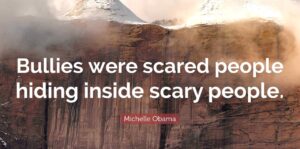《自律養生實踐家之旅370》 致癌物是人,不是物

只是一小時不到的對談,我就能理解坐在我面前的她,為什麼會生病。那段真正讓她不快樂的經歷,她刻意迴避不談,只簡單說「已經搬家了」。
我告訴她:「很好,妳離開了那個讓妳生病的環境,接下來要努力移除讓妳無法放鬆的狀態。」
這讓我想起童年的家,家中的氛圍其實掌握在一個人手裡:我的奶奶。她從未在我的文章裡出現過,但她是家中氣氛的主宰。
我二姊曾經長期活在對她的恐懼中,不是因為犯了大錯,只因一個小細節惹惱了老人家,就要每天承受奶奶的臉色。
恐懼會被存入記憶,也會成為疾病的導火線。在我姊身上是恐懼,在我母親身上則是壓抑的憤怒。
婆媳之間、姑嫂之間的張力,壓得我母親透不過氣;而我父親,既是妹妹與妻子之間的三明治,也是母親與妻子之間的夾心餅乾,他始終無能解決。
上台北讀大學後,留下弟弟獨自陪伴母親,他親眼見母親遭受情緒勒索與凌遲,因此長時間無法原諒與母親對立的親人。
這原本是家醜,但如今我只想還原真相。因為我清楚,這就是病痛的溫床。
樓下是父親的診所,號稱治病之所;樓上是親人聚集的大廳,表面是「相處」,實際是明爭暗鬥。
樓上製造病痛,樓下處理病痛,最弔詭的是,醫生卻對生病的真正軌跡一無所知。
疾病的真相,不在細菌,不在病毒。真正摧毀免疫系統的,是那些日復一日的不快樂情緒。
而不快樂,往往來自人。
多少人仍盲目追隨醫療資訊,把所有病痛交給「不問原因的治療方式」,卻從不理解:環境與人才是最可怕的致癌物。
話題回到她的搬家,脫離製造病痛的環境,本身就是一種「斷捨離」。遠離讓你不快樂的人,遠離頻率不合的磁場,這也是斷捨離。
婆婆對媳婦嚴苛是一種常見劇情。她們或許承襲舊時教育,也可能出於對兒子的過度疼愛。
當然,角色也可能互換:強勢媳婦讓婆婆生病,我也聽過不只一個例子。
而我自己呢?或許有一天,我也可能成為那樣的「婆婆」。表面看似隨和,骨子裡卻重視禮儀與原則,這樣的性格未必讓年輕人好相處。
所以我提醒自己:不成為致癌的因子,不讓任何人因我而長期不快樂。
健康的照護有很多層面,人們最常忽略的,不是環境裡的化學致癌物,而是日常相處中的「人」。
帶著與世俗不同的疾病觀,我特別留意某些人:那些目中無人的人、那些讓人聞之色變的人,尤其是只想講、不想聽的人。
縮小範圍,就是那些令人害怕的存在:暴躁的老闆、不可理喻的伴侶,在幾乎每一次的個案追蹤裡,我總會撞見這樣的人物。
當談話觸及那個人,對方的眼神便閃過極度的不安。
脫離不就好了嗎?離職不就結束了嗎?
然而現實是,他們被報酬綁住,被依賴束縛。割捨不掉的,是生計,也是情感。
這總讓我想起那些為了多賺錢而去上大夜班的人,我的忠告始終如一:得不償失。
為了錢、為了情,卻把健康搭進去,真的大可不必。
所以,若你正是那個讓周圍人恐懼的重要人物,你就是我所說的「致癌物」。這裡的物,不是物質,不是成分,而是人。
真正的致癌物,不是化學物質,而是讓人日復一日失去快樂的人。
一個活生生的、帶著心跳的人,一個誤以為自己很有份量的人。
(霸凌者是懦弱的人,藏身於看似可怕的外表之中。)
The Carcinogen Is People, Not Substances
In less than an hour of conversation, I could already understand why the woman sitting across from me had fallen ill. The part of her life that had truly made her unhappy, she carefully avoided; she only mentioned, with brevity, “I’ve moved.”
I told her: “Good. You’ve left the environment that made you sick. Now, the real task is to remove the state of being that keeps you from relaxing.”
It brought me back to my childhood home, where the atmosphere was dictated by a single figure: my grandmother. She has never appeared in my writings before, yet she was the sovereign of the household mood.
My second sister once lived under her shadow of fear—not because of major mistakes, but because a small slip could offend the elder, condemning her to endure my grandmother’s dark face day after day.
Fear, once stored in memory, becomes a fuse for disease. In my sister it was fear; in my mother, it was repressed anger.
The tension between mother-in-law and daughter-in-law, between sisters-in-law, crushed my mother; my father, meanwhile, was helpless—caught between sister and wife, mother and wife, a sandwich forever unable to resolve the conflict.
When I left for university in Taipei, my younger brother stayed behind, left alone to protect our mother. He witnessed her being emotionally manipulated and torn apart, and for a long time he could not forgive the relatives who opposed her.
It was, admittedly, a family shame. But now, I only wish to restore the truth. Because I know: this was the very soil in which illness grew.
Downstairs was my father’s clinic, advertised as a place for healing; upstairs was the family hall, where “togetherness” was in name only, masking constant strife. Upstairs generated illness; downstairs treated illness. The cruelest irony was this: the doctor remained blind to the true trajectory of disease.
The truth of illness does not lie in bacteria or viruses.
What truly dismantles the immune system are the day-after-day burdens of unhappiness.
And unhappiness almost always comes from people.
Yet so many still blindly follow medical information, handing all their suffering to treatments that “ask no questions about cause,” never realizing: the most terrifying carcinogen is not in the environment—it is in people.
—
Returning to her “moving away”: leaving a sickness-breeding environment is itself a form of decluttering. Distancing yourself from those who drain your joy, distancing from misaligned frequencies—that too is decluttering.
The harsh mother-in-law is a familiar drama. Often rooted in outdated traditions, or in excessive attachment to their sons.
Of course, roles can be reversed: a domineering daughter-in-law can make her mother-in-law ill. I have heard more than one such story.
And myself? One day, I too could become such a “mother-in-law.” Outwardly amiable, yet inwardly strict about etiquette and principle—traits that may make me difficult for younger people to live with.
So I remind myself: I do not want to become a carcinogenic factor, the reason someone suffers long-term unhappiness.
Health has many dimensions. What people most often ignore is not chemical carcinogens in the environment, but the people they live and work with every day.
—
With my unconventional perspective on illness, I pay special attention to certain types of people:
the arrogant, the intimidating, those who only want to speak and never to listen.
Narrowed further, they are those figures who instill fear—an explosive boss, an unreasonable partner. In almost every case study I’ve followed, such people inevitably appear.
When conversations brush against that person, the speaker’s eyes always flicker with deep unease.
Why not just leave? Why not quit?
But reality holds them hostage: bound by income, chained by dependency. What they cannot let go of is livelihood, and often, emotional attachment.
It reminds me of those who take night shifts just to earn more money. My counsel is always the same: not worth it.
For the sake of money or affection, sacrificing one’s health—utterly unnecessary.
—
So, if you are that figure who strikes fear into those around you, you are the “carcinogen” I speak of.
Here, “substance” does not mean chemicals or compounds—it means people.
The true carcinogen is not a material, but a person who robs others of joy, day after day.
A living, breathing human being; one who mistakes their weight for significance.


